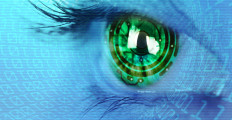The Government didn’t install cameras and microphones in our homes. We did.
Falkvinge on Infopolicy 2017-01-11
Summary:

Global: It begins: Amazon’s constantly-listening robotic home assistant was near a domestic murder case, and now the Police wants access to anything it might have heard. There have been similar cases in the past, but this is where it starts getting discussed: There are now dozens of sensors in our house. Do we still have an expectation of privacy in our home?
A recurring theme in the dystopic fiction of the 1950s was an everpresent government watching everything you did, as witnessed in the infamous Nineteen Eighty-Four and many others. Adding to the dystopia, starting in the 1970s with movies such as Colossus, computers are typically added to the mix of watching everything all the time.
However, these fictional dystopias all got one critical thing wrong in predicting the future: the government never installed cameras and microphones in everybody’s home. We did. We did it ourselves. And we paid good money for them, too. A smart television set — with infrared cameras built in, watching the people watching the television set as well as listening to them — costs good money that we happily paid.
“The television set received and transmitted simultaneously. Any sound that Winston made, above the level of a very low whisper, would be picked up by it, moreover, so long as he remained within the field of vision which the metal plaque commanded, he could be seen as well as heard. There was of course no way of knowing whether you were being watched at any given moment. How often, or on what system, the government plugged in on any individual wire was guesswork. It was even conceivable that they watched everybody all the time. But at any rate they could plug in your wire whenever they wanted to. You had to live–did live, from habit that became instinct–in the assumption that every sound you made was overheard, and, except in darkness, every movement scrutinized.” — 1984
And now, the police wants access to all of it, not unlike in the brilliant short movie Plurality. In news this week, the police has just requested access to the recordings made by an Amazon smart unit in the home in order to solve a murder.

Of course, it always starts like this. A murder case. One murder case. The next time, it’s an assault rape case. The public opinion wants blood, and privacy has no value compared to catching a killer or rapist. So somebody, somewhere with authority, decides that privacy doesn’t apply in cases “like this”. Then, the government notes this mechanism has already been used for “felonies” – severe crime in general – and decides to apply the same rule for tax evasion, a decision which has no support in public opinion, but which is a crime that the government considers severe. A few more years, and the blanket privacy invasion is used to sue teenagers sharing music and to issue the mundanest of parking tickets.
(I want to point out that this ridiculous example of a slippery slope is exactly what happened with the hated mandatory Internet logging laws in Europe. They started out against murder cases and mass-murder terrorism, and before even a decade had passed, the privacy invasions were used against “all crime, including ticket-level misdemeanors”, and the copyright industry had special private access to the surveillance data for the purpose of suing people. This isn’t made up, it’s exactly what happens. The European Supreme Court struck that shit down as utterly unconstitutional, but it took a decade.)
The question is as disturbing as it is important. Legally speaking, do we still have an expectation of privacy in our own home? Especially when we installed equipment for the express purpose of listening to us and watching us?
As the Snowden movie came out, it was highlighted yet again that our mobile phones are constantly-wiretappable microphones, as the movie version of Edward Snowden took everybody’s phones and put them in a Faraday cage in his hotel room. How long until this is an ordinary reflex with ordinary people,